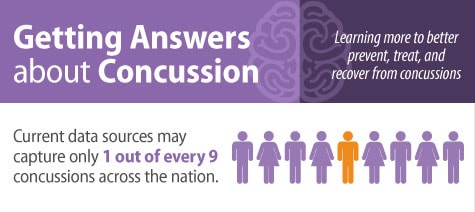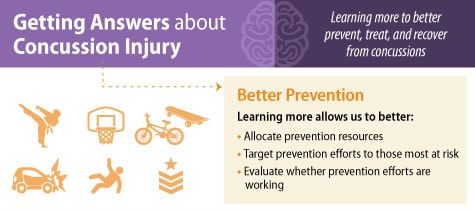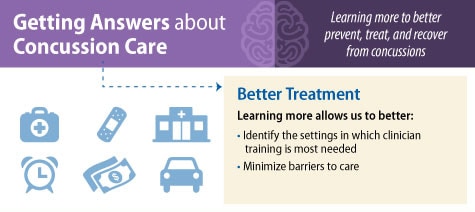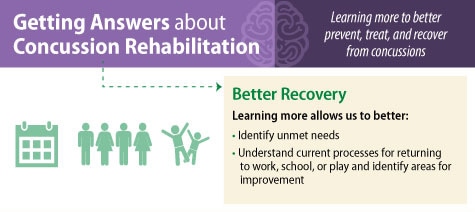Key points
- CDC finished pilot testing a survey about TBI experienced by children and adults in fall 2019.
- The pilot results are helping to refine plans for a National Concussion Surveillance System (NCSS).
Purpose
CDC is committed to finding answers for Americans concerned about concussion and other traumatic brain injuries (TBI). As part of this, CDC is developing systems and programs that best address this important public health problem.
CDC finished pilot testing a survey about TBI experienced by children and adults in fall 2019. The pilot results are helping to refine plans for a National Concussion Surveillance System (NCSS). NCSS will help improve prevention, care, and recovery efforts underway at CDC and among groups invested in helping those who experience a TBI.




Why it matters
The state-of-the-art NCSS will be able to accurately determine how many Americans (children and adults) get a concussion each year and determine the cause. In addition, the results of a national system would inform and equip leaders within communities and states across the U.S. by:
- Creating—for the first time ever—true national estimates of the number of people living with a disability caused by a brain injury.
- Providing the first national estimates of sports-related concussions among youth that occur both in and outside of organized sports.
- Providing information about the most common cause of injury for concussion, including motor vehicle crashes, falls, and self-harm.
- Monitoring trends to understand whether the number of concussions is increasing or decreasing, and assessing whether prevention efforts are working.
- Giving insight to healthcare providers and hospitals about where patients seek care for concussion and their recovery needs.
